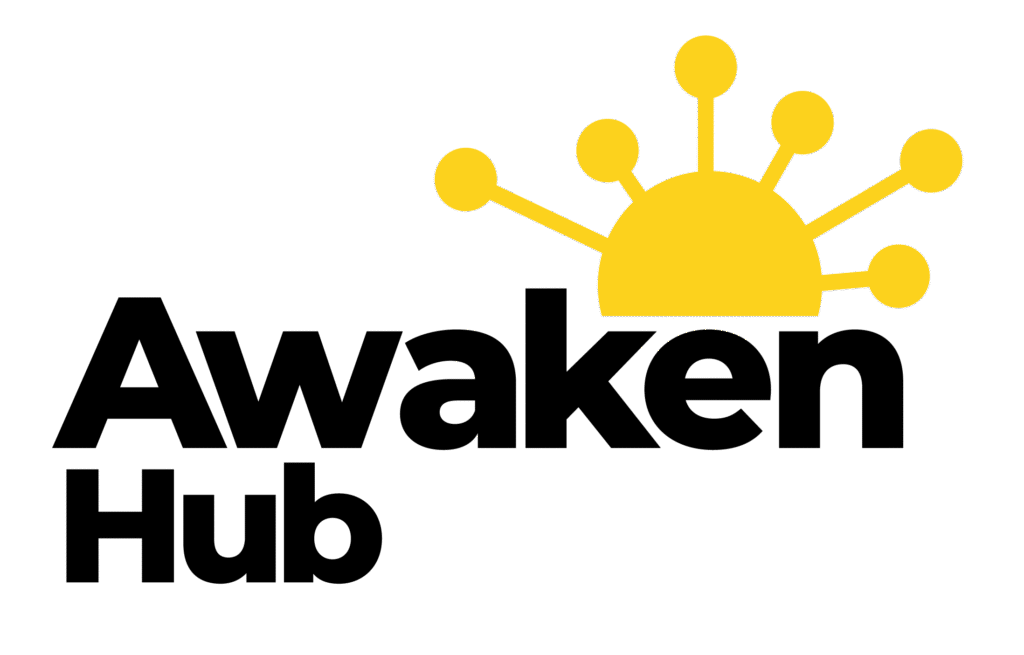Top Tips for Effective SEO Page Analysis
In the ever-evolving digital landscape of Ireland, understanding the importance of SEO page analysis is paramount for any business aiming…
In the ever-evolving digital landscape of Ireland, understanding the importance of SEO page analysis is paramount for any business aiming to thrive online. As you navigate through the competitive market, you will find that SEO page analysis serves as a critical tool in enhancing your website’s visibility and performance.
This process not only helps you understand how well your content resonates with your audience but also reveals opportunities for improvement that can lead to increased traffic and conversions. Moreover, in a country where local businesses are increasingly vying for attention, SEO page analysis allows you to tailor your strategies to meet the specific needs of your target market. For instance, if you run a tourism business in Galway, understanding how potential customers search for local attractions can inform your content strategy.
By analysing keywords and user behaviour, you can optimise your pages to align with what your audience is actively seeking. This targeted approach not only enhances user experience but also positions your business as a relevant and authoritative source within your niche.
Summary
- SEO page analysis is crucial for understanding the performance of a website and identifying areas for improvement.
- Choosing the right tools for SEO page analysis is essential for obtaining accurate and comprehensive data.
- Key metrics to analyse for SEO include organic traffic, keyword rankings, bounce rate, and conversion rate.
- Analysing on-page elements such as meta tags, headings, and content quality is important for improving website visibility.
- Analysing off-page elements like backlinks and social signals is essential for understanding the website’s authority and relevance in search engines.
- Interpreting and utilising data from SEO page analysis can help in making informed decisions and developing effective strategies.
- Implementing changes based on SEO page analysis can lead to improved website performance and visibility in search engine results.
- Monitoring and adjusting SEO strategies based on page analysis is necessary for staying competitive and maintaining high rankings.
Choosing the Right Tools for SEO Page Analysis
Comprehensive Data Analysis
You might consider using platforms like SEMrush or Ahrefs, which provide comprehensive data on keyword rankings, backlinks, and competitor analysis. These tools can help you understand where your website stands in relation to others in your industry, allowing you to make informed decisions about your SEO strategy.
Understanding User Behaviour
Additionally, Google Analytics is an indispensable tool that offers a wealth of information about user behaviour on your site. By integrating Google Search Console with Analytics, you can gain deeper insights into how users find and interact with your pages.
Tracking Key Metrics
This combination allows you to track important metrics such as bounce rates, session duration, and conversion rates, all of which are vital for assessing the effectiveness of your SEO efforts.
Identifying Key Metrics to Analyse for SEO

When conducting an SEO page analysis, identifying key metrics is essential for understanding the performance of your website. You should focus on metrics such as organic traffic, keyword rankings, and click-through rates (CTR). Organic traffic indicates how many visitors are arriving at your site through search engines, which is a direct reflection of your SEO efforts.
By monitoring this metric over time, you can gauge the effectiveness of your strategies and make adjustments as needed. Another critical metric to consider is keyword rankings. By tracking the positions of your targeted keywords in search engine results pages (SERPs), you can determine which keywords are driving traffic and which may require further optimisation.
Additionally, analysing CTR can provide insights into how compelling your meta titles and descriptions are. A low CTR may suggest that your content isn’t resonating with users or that it’s not appearing prominently enough in search results. By focusing on these key metrics, you can develop a clearer picture of your website’s performance and identify areas for improvement.
Analysing On-Page Elements for SEO
| On-Page Element | SEO Metric |
|---|---|
| Title Tag | Length, Keyword Placement |
| Meta Description | Length, Relevance to Content |
| Heading Tags (H1, H2, etc.) | Keyword Usage, Structure |
| URL Structure | Keywords, Readability |
| Image Alt Text | Descriptive, Keywords |
| Internal Links | Relevance, Anchor Text |
| External Links | Quality, Relevance |
On-page elements play a significant role in determining how well your website performs in search engine rankings. As you analyse these elements, pay close attention to factors such as title tags, meta descriptions, header tags, and content quality. Title tags should be concise yet descriptive, incorporating relevant keywords that reflect the content of the page.
For instance, if you operate a bakery in Dublin, a title tag like “Artisan Breads and Pastries in Dublin – [Your Bakery Name]” can help attract local customers searching for baked goods. Meta descriptions also deserve careful consideration, as they serve as a summary of your page’s content in search results. A well-crafted meta description can entice users to click through to your site.
Ensure that it includes relevant keywords while maintaining an engaging tone that reflects your brand’s personality. Additionally, header tags (H1, H2, H3) should be used effectively to structure your content and make it easier for both users and search engines to navigate. By optimising these on-page elements, you can significantly enhance your website’s visibility and user experience.
Analysing Off-Page Elements for SEO
While on-page elements are crucial for SEO success, off-page factors also play a vital role in determining your website’s authority and credibility. One of the primary off-page elements to analyse is backlinks. Backlinks from reputable websites signal to search engines that your content is valuable and trustworthy.
You should focus on acquiring high-quality backlinks from relevant sources within your industry. For example, if you run a tech startup in Cork, securing backlinks from established tech blogs or industry publications can boost your site’s authority. Social media presence is another important off-page element to consider.
Engaging with your audience on platforms like Facebook, Instagram, or LinkedIn can drive traffic to your website and enhance brand visibility. You might analyse how often your content is shared or discussed on social media channels as part of your off-page analysis. Additionally, online reviews and reputation management are critical components of off-page SEO; positive reviews can enhance trustworthiness while negative feedback may require prompt attention.
By thoroughly analysing these off-page elements, you can develop a more comprehensive SEO strategy that encompasses both on-site and off-site factors.
Interpreting and Utilising Data from SEO Page Analysis

Once you have gathered data from your SEO page analysis, the next step is interpreting this information effectively. You should look for patterns and trends that emerge from the data; for instance, if certain pages consistently attract high traffic while others underperform, it may indicate that specific topics resonate more with your audience. Understanding these nuances allows you to refine your content strategy and focus on areas that yield the best results.
Utilising this data involves making informed decisions about future content creation and optimisation efforts. If you notice that certain keywords are driving significant traffic but have low conversion rates, it may be worth revisiting the content on those pages to enhance its relevance or call-to-action (CTA). Additionally, if specific pages have high bounce rates, it could indicate that users are not finding what they expected upon arrival.
By addressing these issues based on data insights, you can create a more engaging user experience that ultimately leads to higher conversions.
Implementing Changes Based on SEO Page Analysis
Implementing changes based on your SEO page analysis is where the real transformation occurs. After identifying areas for improvement, it’s essential to prioritise these changes based on their potential impact on performance. For example, if you discover that certain pages lack optimised title tags or meta descriptions, addressing these elements should be a top priority.
Similarly, if specific keywords show promise but are not adequately represented in your content, consider creating new blog posts or updating existing pages to incorporate these keywords naturally. Moreover, it’s important to approach changes systematically rather than making numerous adjustments all at once. This allows you to monitor the effects of each change individually and assess its impact on performance metrics over time.
For instance, if you optimise a page’s content for better keyword targeting, track its organic traffic and rankings over the following weeks to determine whether the changes yield positive results. By taking a methodical approach to implementing changes based on analysis findings, you can ensure that each adjustment contributes meaningfully to your overall SEO strategy.
Monitoring and Adjusting SEO Strategies Based on Page Analysis
The final step in the SEO page analysis process involves ongoing monitoring and adjusting of your strategies based on the insights gained from previous analyses. The digital landscape is dynamic; what works today may not be effective tomorrow. Therefore, regularly revisiting your analytics tools and tracking key metrics is essential for staying ahead of the competition in Ireland’s business environment.
As you monitor performance over time, be prepared to make adjustments as needed. If certain strategies are yielding diminishing returns or if new trends emerge within your industry, adapting quickly will keep your business relevant and competitive. For instance, if you notice a shift in user behaviour towards mobile browsing in Ireland, ensuring that your website is mobile-friendly becomes imperative.
By maintaining a proactive approach to monitoring and adjusting your SEO strategies based on page analysis findings, you position yourself for sustained success in an ever-changing digital landscape.
If you are looking to improve your small business’s online presence, it is essential to conduct a thorough SEO page analysis. This process involves examining various aspects of your website to ensure it is optimised for search engines. A related article on this topic can be found at How to Use SEO for Small Business. This article provides valuable insights and tips on how to effectively utilise SEO strategies to boost your small business’s visibility online. Additionally, implementing a local business SEO strategy, as discussed in another article at Local Business SEO Strategy, can further enhance your website’s performance in search engine results.
FAQs
What is SEO page analysis?
SEO page analysis is the process of evaluating and assessing a web page to determine its search engine optimization (SEO) effectiveness. This involves examining various on-page and off-page factors that can impact a page’s visibility and ranking in search engine results.
Why is SEO page analysis important?
SEO page analysis is important because it helps website owners and marketers understand how well their web pages are optimized for search engines. By conducting a thorough analysis, they can identify areas for improvement and make necessary changes to increase their chances of ranking higher in search results.
What are the key elements of SEO page analysis?
Key elements of SEO page analysis include evaluating the page’s content quality, keyword usage, meta tags, internal and external links, page load speed, mobile-friendliness, and overall user experience. These factors play a crucial role in determining a page’s SEO performance.
How is SEO page analysis conducted?
SEO page analysis is typically conducted using a combination of manual review and specialized tools. This may involve examining the page’s HTML code, content structure, keyword density, backlink profile, and other relevant metrics. There are also various SEO analysis tools available that can automate the process and provide detailed insights.
What are the benefits of conducting SEO page analysis?
Conducting SEO page analysis can help website owners and marketers identify and address issues that may be hindering their search engine visibility. By optimizing their web pages based on the findings of the analysis, they can improve their chances of ranking higher in search results, attracting more organic traffic, and ultimately achieving their business goals.










